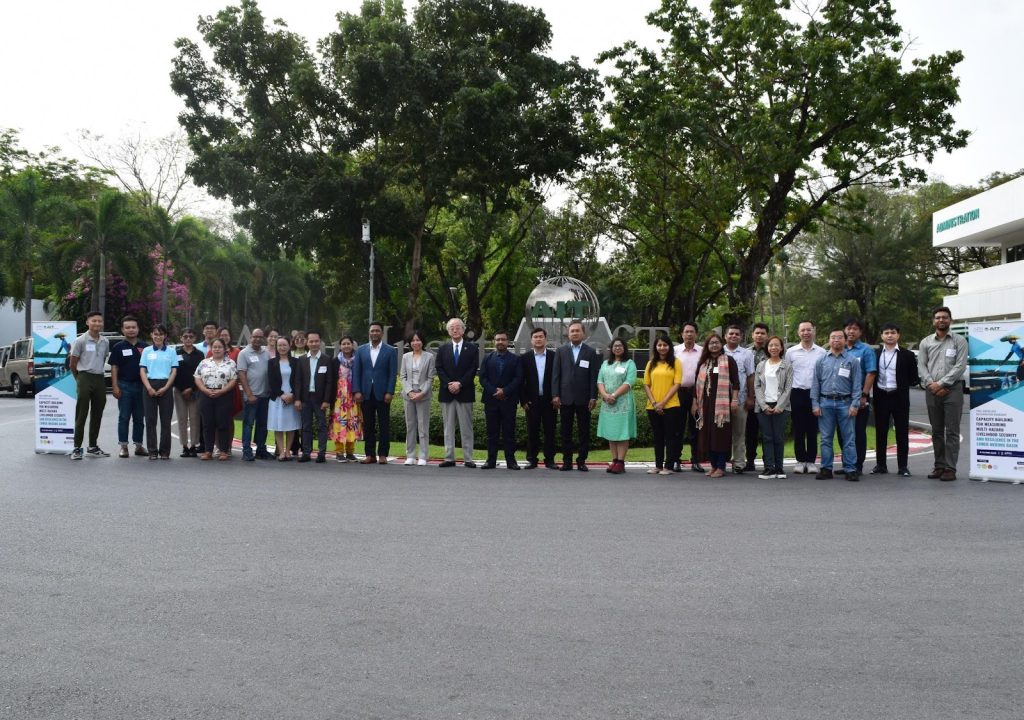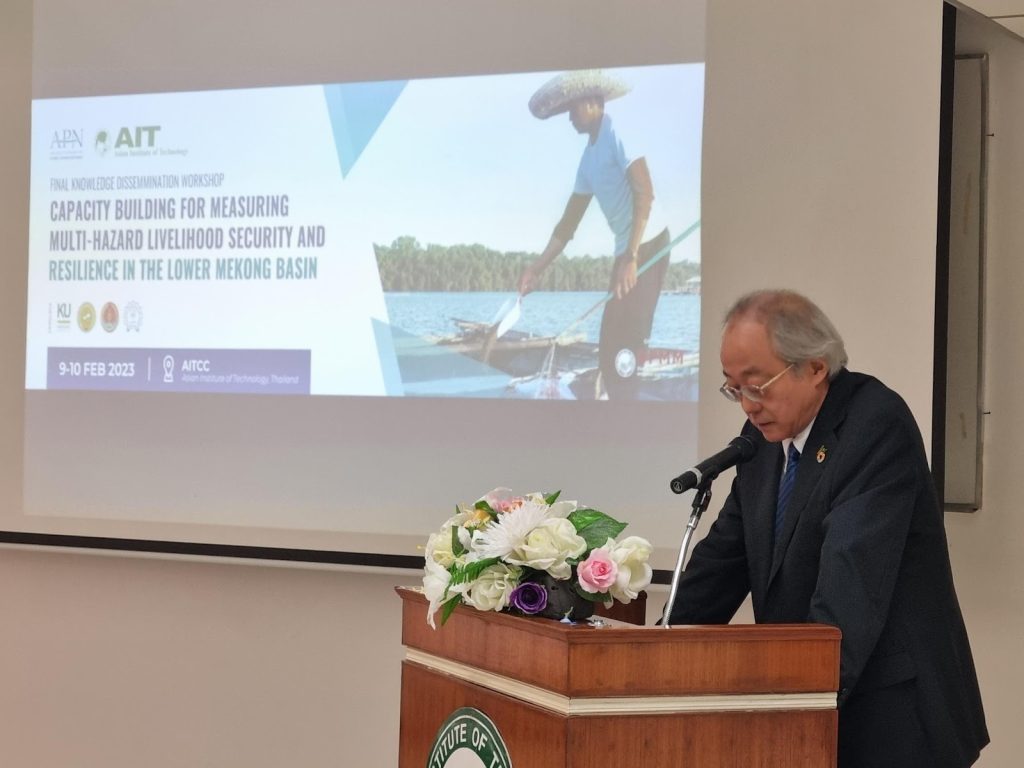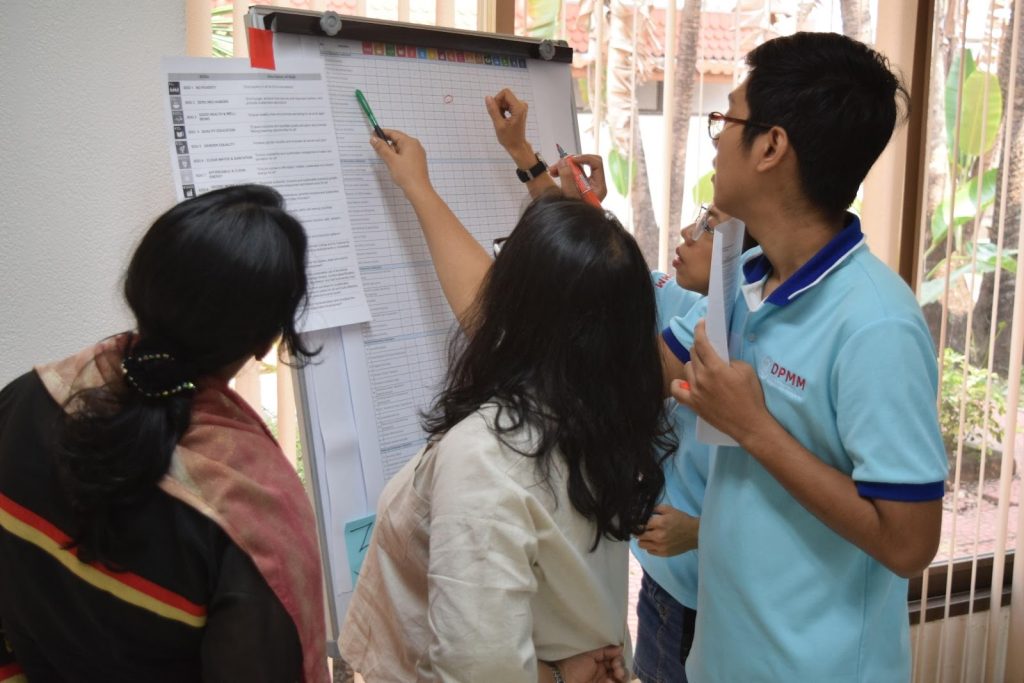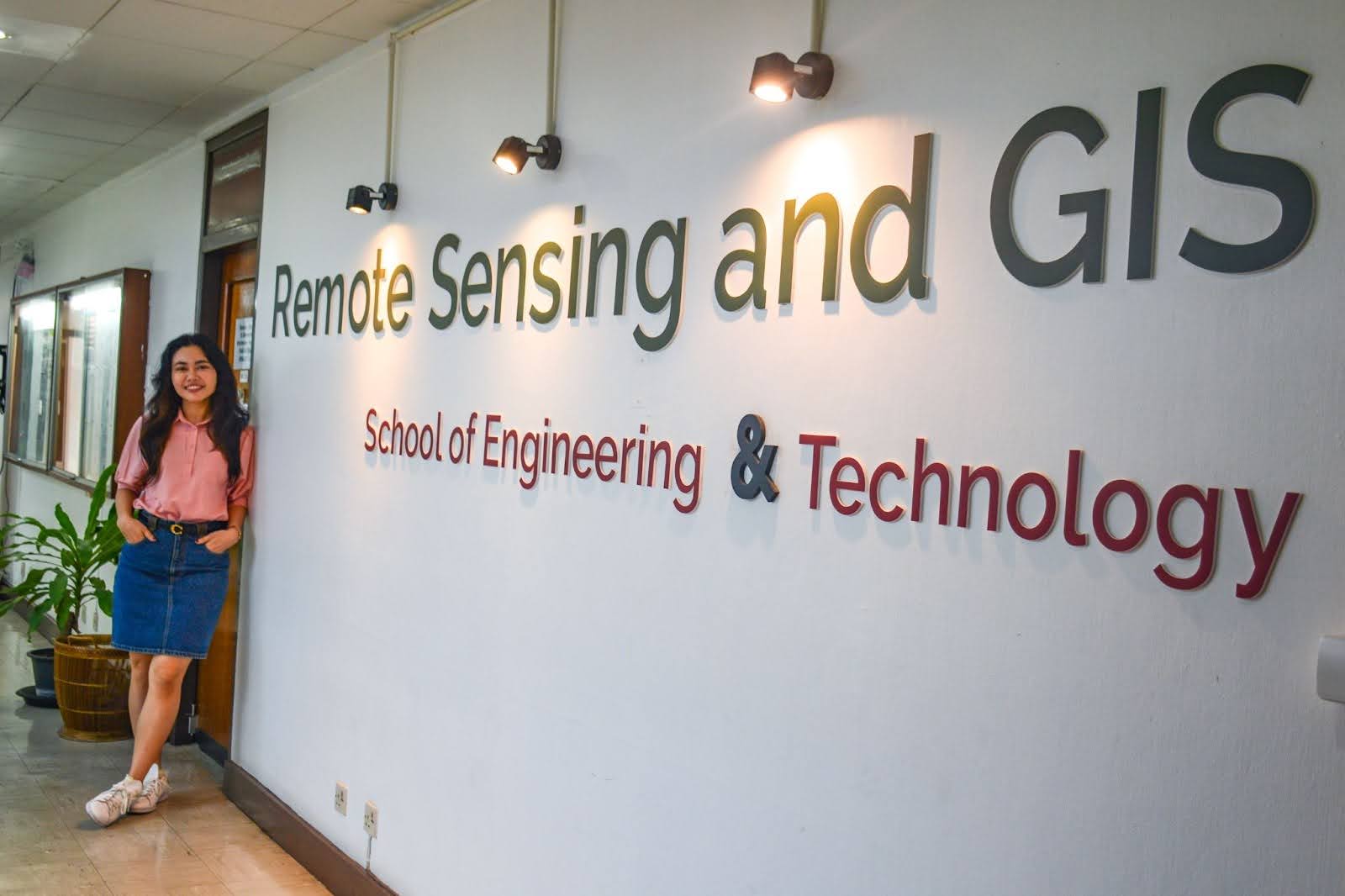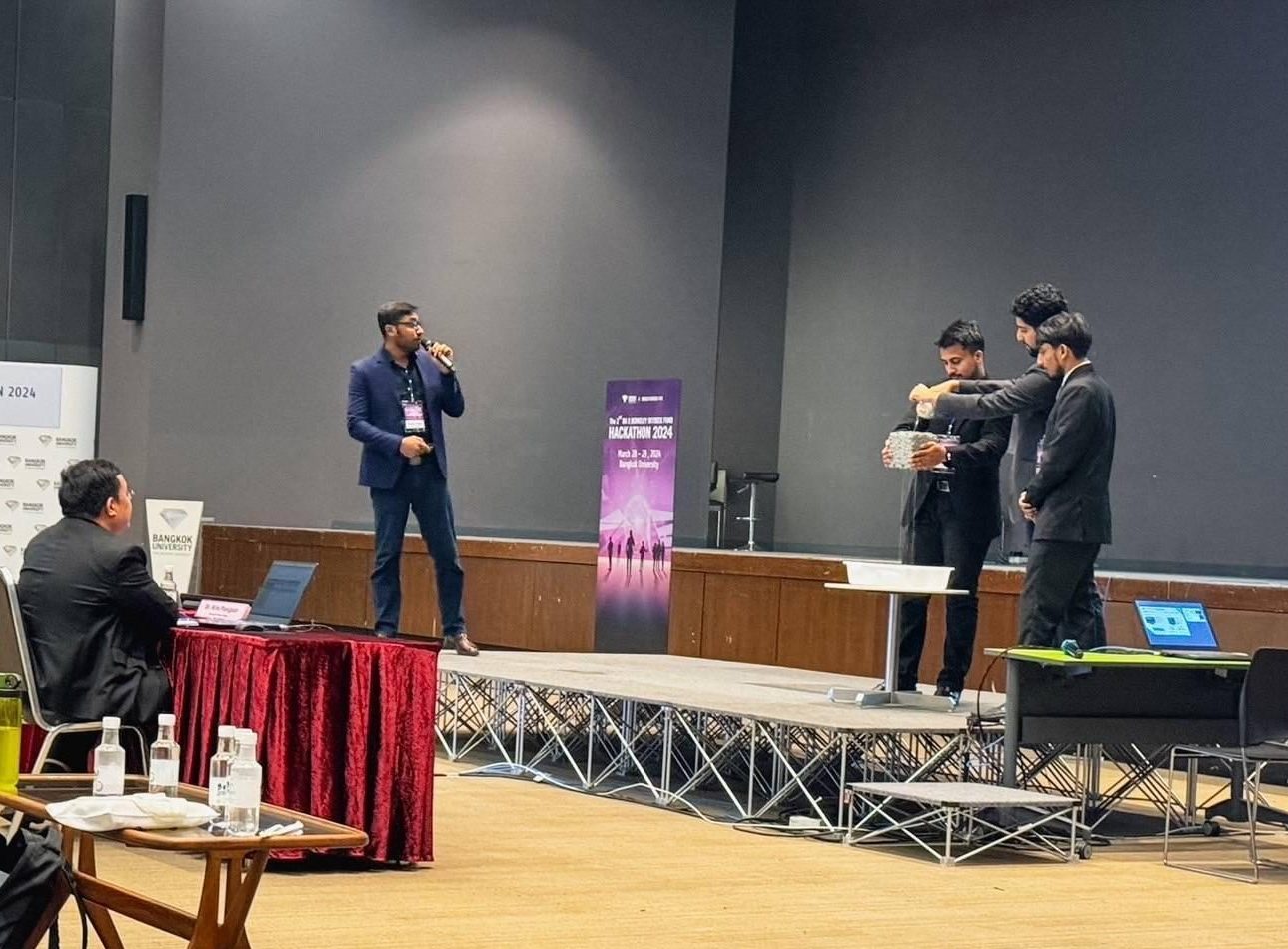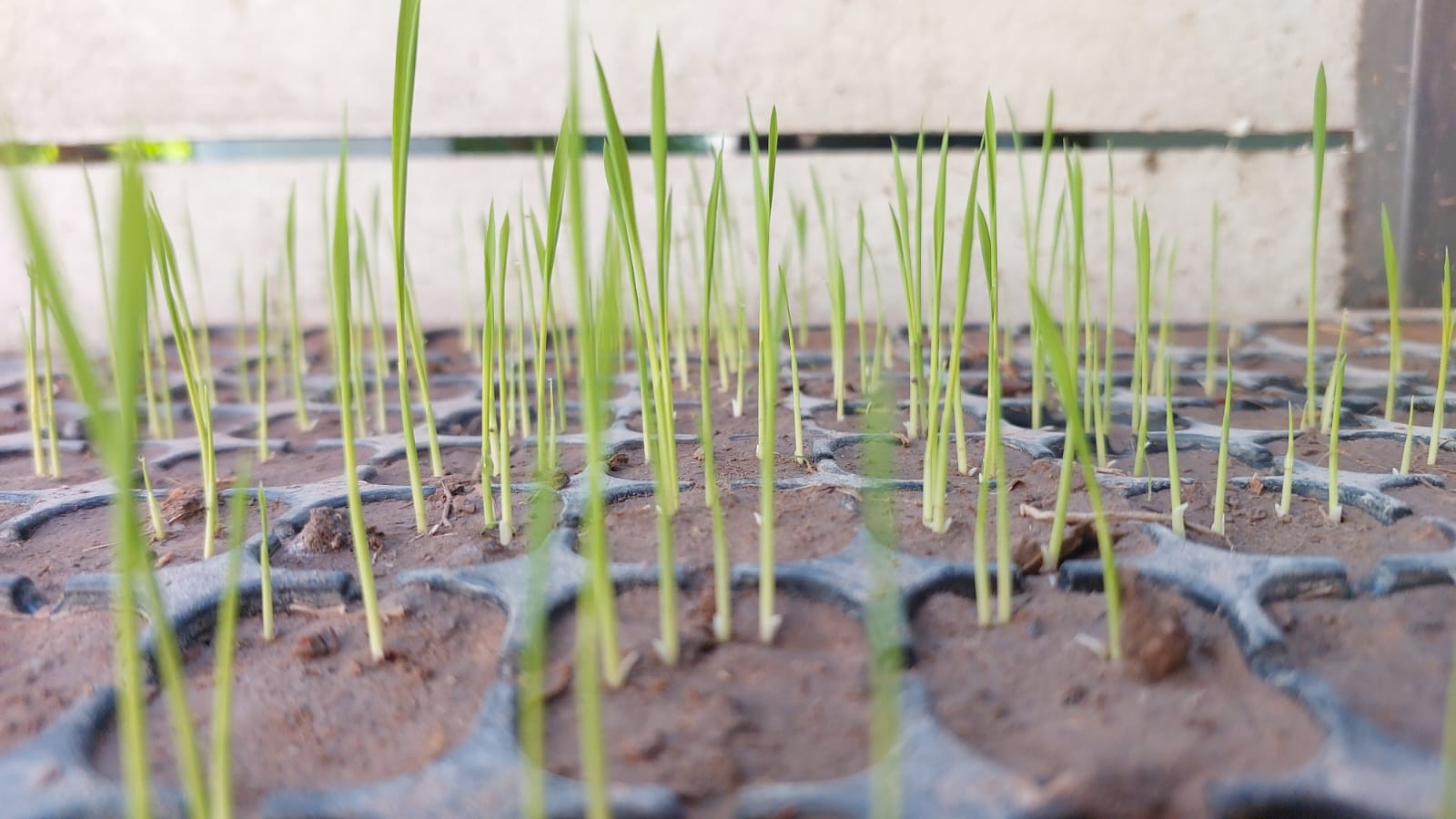Asian Institute of Technology (AIT)’s Disaster Preparedness, Mitigation, and Management (DPMM) program conducted the “Final Knowledge Dissemination Workshop” of the project “Capacity Building for Measuring Multi-hazard Livelihood Security and Resilience in the Lower Mekong Basin” on 9-10 February 2023 at the AIT Conference Center. Thirty-two participants including experts, researchers, and post-graduate students from various institutions and organizations in Thailand, Vietnam, and Cambodia attended the workshop.
The two-day workshop primarily discussed the perspectives of livelihood resilience in the Lower Mekong Basin communities and introduced researchers to the Livelihood Security and Resilience Assessment (LiSeRA) framework and toolkit developed as part of the project. The collaborative project is led by the Asian Institute of Technology, in partnership with Kasetsart University, Sakon Nakhon Province Campus, Thailand; An Giang University, Vietnam; Royal University of Phnom Penh, Cambodia; and Indian Institute of Technology Bombay (IIT Bombay) and is supported by the Asia Pacific Network for Global Change Research (APN), Japan. The project directly contributes to six Sustainable Development Goals: 1,3,6,10,11 & 13.
Dr. Indrajit Pal, Associate Professor and Chair, DPMM and Principal Investigator of the project welcomed the delegates and briefed them about the project. Prof. Kazuo Yamamoto, President of AIT delivered his opening remarks and appreciated the project collaborators for their efforts to build the capacity of researchers and institutions for interdisciplinary research and action linked to the SDGs for Lower Mekong Basin countries. Prof. Sangam Shrestha, Professor and Head of the Department of Civil and Infrastructure Engineering at AIT and Member of the Scientific Planning Group of APN discussed the contribution of APN in addressing critical challenges faced by the Asia Pacific Region through collaborative research projects, training workshops, seminars, and conferences.
The workshop included several technical sessions to discuss livelihood security and resilience scenarios in the Lower Mekong Basin countries. Dr. Thi Phuoc Lai Nguyen, Assistant Professor at the Department of Development & Sustainability, AIT shared the cultural, political, and socio-economic challenges faced in the region for water security, and its socio-economic impacts and discussed key principles for adaptive water governance. Dr. Nuwong Chollacoop, Director, of Low Carbon Energy Research Group, National Energy Technology Center (ENTEC), Thailand discussed the impacts of climate change on critical infrastructures such as transportation and the need to invest in climate change adaptability of such infrastructure to enhance the resilience of the communities in the region.
Dr. Indrajit Pal shared the multi-hazard scenario in the LMB region, and its impacts on livelihood and resilience in the communities and discussed the need for a robust assessment framework to help governments and development agencies make evidence-based decision-making for implementing risk management activities. Similarly, Dr. Parmeshwar Udmale, Assistant Professor at the Indian Institute of Technology Bombay (IIT Bombay) demonstrated the use of the LiSeRA framework and toolkit for conducting livelihood resilience assessment. Dr. Puvadol Doydee, Assistant Professor, Kasetsart University Chalermphrakiat Sakon Nakhon Province Campus, Thailand; Dr. Tanh Nguyen, Dean of College of Engineering, Technology, and Environment, An Giang University, Vietnam; and Dr. Seak Sophat, Vice Dean, Faculty of Development Studies, Royal University of Phnom Penh, Cambodia shared about the national and local perspectives of livelihood security and resilience in the LMB communities and emphasized on the need for robust assessment and collective action from all sectors.
In addition to technical sessions, participants were also engaged in discussions on the assessment toolkit and group activities such as determining the weightages and ranking of the LiSeRA toolkit and SDG mapping of the indicators.
